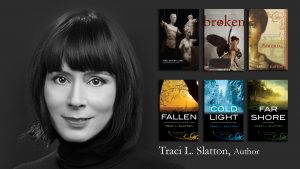Method Writing
My husband told me last night that I was “method writing.”
I was posing for Sabin, as I do several nights a week. He’s sculpting a bust of me and at this point I am convinced that the work will never end. It’s been a year and a half and he tells me there’s still a lot to do before he closes the piece.
Maybe it’s just that he’s never had a free model before, so he’s finishing the sculpture to a level he always wanted, but could never before indulge in?
Anyway, I was wiggly and introspective last night, unable to focus on the television and hold the pose. My face kept moving and changing in thought, my fingers fluttered, and I pulsed up and down my spine like a jack-in-the-box. I simply could not summon my usual discipline.
“It’s this book you’re writing,” Sabin said, in a matter-of-fact tone. “You’re method writing.”
It’s true that I write from the inside of a story and that I am writing a very dark novel set during World War II. It weighs on my heart. I have been walking around the house muttering to myself, inquiring of myself about the nature of good and evil, man’s inhumanity to man, and the role of a good God in a world filled with corruption, vice, cruelty, and genocide.
The days that I research the Geheime Staatspolizei, familiarly known as the Gestapo, are not pleasant. For me, writing is an arachnid process: I pull stories out of my gut. Writing historical novels requires painstaking research, which I love to do. But to take in the information I need about the Nazi Secret State Police, I have to internalize things that are probably better left unconsumed, undisturbed.
But if I don’t do it, who will? I believe that novelists have a duty to their readers to metabolize and transform information; a historical novelist has to make the past fresh and relevant.
Else we repeat the past, right?
The problem is that the genocide of Jews and the murder of gypsies, homosexuals, and Poles during the second world war wasn’t the only genocide of the 20th century.
And evil is still afoot: think about the abducted girls in Nigeria. Boko Haram extremists took more than 200 girls from their school. I can not imagine how their families feel. Holocaust survivors can.
The necessary end to an insistence on purity is terrorism. Whether that purity concerns Aryan blood or Sharia law, it must needs end in terrorism.





